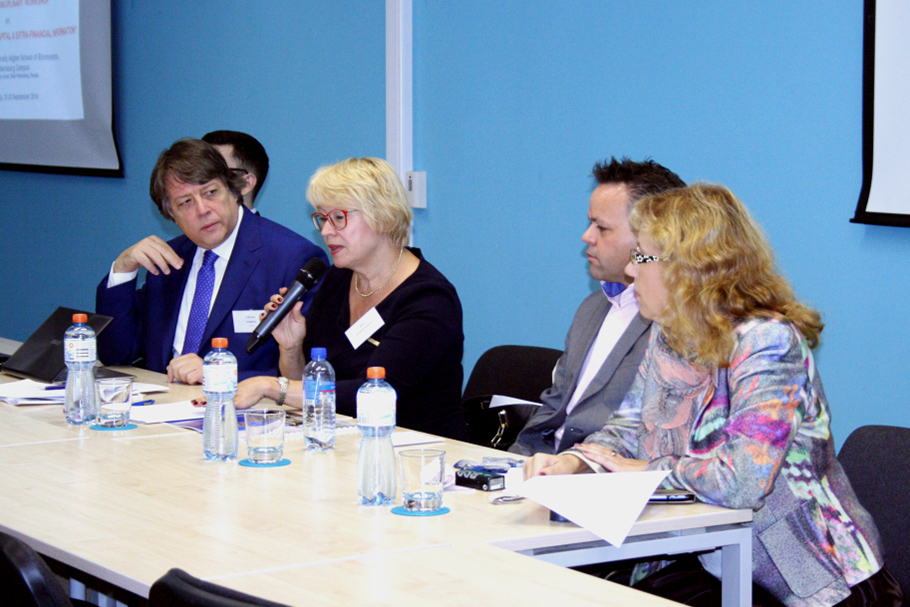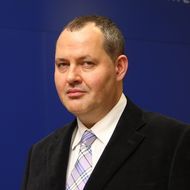- A
- A
- A
- ABC
- ABC
- ABC
- А
- А
- А
- А
- А
- HSE University
- Faculties
- Faculty of Economic Sciences
- News
- Research & Expertise
- Interest in Intellectual Capital and Intangibles Is Present in All Countries
-
Departments
- Departments
-
Institutes and Centres
-
- Institute of Economics and Utility Regulation
- Institute for Industrial and Market Studies
- Centre for Labour Market Studies
- International Centre of Decision Choice and Analysis
- Centre of Development Institute
- Centre for Financial Research & Data Analytics
- Economic Statistics Centre of Excellence
- Anti-Corruption Centre
-
-
Laboratories
-
- International Laboratory for Macroeconomic Analysis
- International Laboratory of Stochastic Analysis and its Applications
- International Laboratory for Experimental and Behavioural Economics
- Corporate Finance Center
- Laboratory for Banking Studies
- Laboratory for Labour Market Studies
- Laboratory for Sport Studies
- Laboratory for Wealth Measurement
- Project Laboratory for Development of Intellectual Competitions in Economics
- Laboratory for Spatial Econometric Modeling of Socio-Economic Processes in Russia
-
- Department of Financial Market Infrastructure
- ICEF
-
Educational Programmes
- Bachelor's Programmes
-
Master's Programmes
-
- Economics and Economic Policy
- Agrarian Economics
- Stochastic Modeling in Economics and Finance (Previously, Master's in Statistical Modelling and Actuarial Science)
- Statistical Analysis in Economics
- Economic Analysis (Online)
- Strategic Corporate Finance
- Financial Markets and Institutions
- Corporate Finance
- Financial Engineering
- Master of Business Analytics (Online)
- Investments in Financial Markets (Online)
-
- Doctoral Programmes
-
Faculty
109028, Moscow,
11 Pokrovsky Boulevard,
Room Т-614
Phone: (495) 628-83-68
email: fes@hse.ru
Founded in 1992, the HSE Faculty of Economics is the university’s oldest faculty. In the years since it was founded, it has gained a reputation as Russia’s leader in terms of higher economic education.
A fundamental education in modern economic theory and mathematics is combined with the study of applied disciplines, such as taxation, budget policies and processes, financial management and other related fields.
In press
Applied Econometrics. 2024.
In press
In bk.: Oxford Research Encyclopedia of Economics and Finance. Oxford University Press, 2024.
Dagaev D., Paklina S., Parshakov P.
Social Science Research Network. Social Science Research Network. SSRN, 2024

Interest in Intellectual Capital and Intangibles Is Present in All Countries

Stefano Zambon, Professor of the University of Ferrara, Irina Ivashkovskaya, Head of the Department of Finance, Christopher Gerry, Professor at the St. Petersburg School of Social Sciences and Humanities and Elena Rogova, Dean of HSE St Petersburg School of Economics and Management
The 12th Annual International Workshop ‘Intangibles, Intellectual Capital and Extra-Financial Information’ was held at HSE St Petersburg last week. This is an established event that many academics and practitioners in the area of intellectual capital and intangibles know about due to its high credibility. Most of the relevant people in this field have participated in the workshop throughout the years.
Co-organizer of the event, Stefano Zambon, Professor of the University of Ferrara, Chairman of the World Intellectual Capital/Assets Initiative Network Europe (WICI Europe) underlines, that it is very important that this year’s event took place in Russia. ‘One of the important elements for the development of the Russian economy in the next few years is linked to knowledge. Creativity, innovation, and all these aspects have in common the predominant presence of intangible resources. Innovation is based on ideas - new concepts. In order to have an innovation, you need to have leadership, organizational procedures, skills, competencies, so all these aspects are intangible. All these aspects together give rise to the IC of an organization.’
Professor Zambon notes the important contribution of HSE Tenured Professor Irina Ivashkovskaya in setting up the context of this workshop and Professor Elena Rogova (Dean of HSE St Petersburg School of Economics and Management) in creating the preconditions for this event. ‘We are all interested in value creation and to understand the roots of value creation, so I’m sure there will be more possibility to carry out research together very soon,’ says Prof Zambon.
The title of this workshop has ‘interdisciplinary’ in the name. That is because this field is interdisciplinary. There are various strands from different perspectives from which you can look at IC. One important trend that emerged very strongly this year is the role of IC in public sector entities. It is an important trend that this year exploded. One-third of the papers presented at the workshop come from this perspective - the role of IC in public sector entities. Another important trend is linked to the rise of so-called integrated reported and thinking. It’s a new way to manage companies and to report on companies, looking at them in a holistic way. When you look at the management of organizations in a holistic way, you have the problem of how to understand the role of intangible resources. If you look at organizations in an integrated way, you want to understand why an organization produces value. What are the value drivers for this organization? And you will see that in 90 percent of the cases, the answer is always intangible resources.
Professor Zambon states that the interest in IC and intangibles is present in all countries. There might be different accents in the perspective. For instance, in Austria, the big interest in IC is linked to the fact that universities there are bound to prepare and publish an IC statement - each university, each year. So there is interest because they must do this by law. In some other countries, for example Australia and Italy, there is an interest in integrated reporting. In Spain, there is an interest in intangibles in the public sector. There’s a quite horizontal interest in intangibles. In Germany, there is a particular reporting practice called report on knowledge because many small and medium enterprises publish this. There are some variations, but, on the whole, it is a quite generalized interest with some distinct interests in some countries.
Elena Rogova
- About
- About
- Key Figures & Facts
- Faculties & Departments
- International Partnerships
- Faculty & Staff
- HSE Buildings
- Public Enquiries
- Studies
- Admissions
- Programme Catalogue
- Undergraduate
- Graduate
- Exchange Programmes
- Summer University
- Summer Schools
- Semester in Moscow
- Business Internship
-
https://elearning.hse.ru/en/mooc/
Massive Open Online Courses
-
https://www.hse.ru/en/visual/
HSE Site for the Visually Impaired
-
http://5top100.com/
Russian Academic Excellence Project 5-100
- © HSE University 1993–2024 Contacts Copyright Privacy Policy Site Map
- Edit





